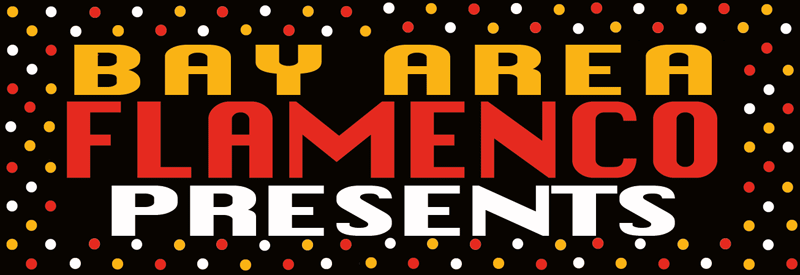
OAKLAND MAGAZINE If you happened to see her in a local coffee shop or pass her on the street, you probably would not recognize her. But in the world of jazz, folk, and blues, singer Barbara Dane is an international icon. At 88 her voice is still rich and powerful and full of purpose.
Earlier this year she performed to a packed house at Berkeley’s Freight & Salvage Coffeehouse, sharing top billing with Maria Muldaur. But for the most part it was Dane’s show backed up by Johnny Harper and company. Time once described her voice as “pure, rich, and rare as a 20 carat diamond.” In those days she was recording for Capitol Records. Louis Armstrong, with whom she performed on the Timex All-Star Jazz Show hosted by Jackie Gleason, referred to her as “a gasser,” musician talk for a bombshell. Some have simply called her a wild woman. The word retirement is not in her vocabulary. She just finished recording a new CD, Throw It Away, to be released in October.
An Oakland resident for the past 35 years, Dane has performed all over the world, enthralling audiences wherever she goes. Her career as a singer and entrepreneur has, without question, taken her on a wild ride over the past seven decades. In 1961 she opened her own club called Sugar Hill: Home of the Blues in the heart of San Francisco’s North Beach. There she not only performed but also brought in such great artists as Mose Allison, Lonnie Johnson, Tampa Red, Lightnin’ Hopkins, and Big Mama Thornton.
By the early 1970s, Dane had founded Paredon Records, producing about 50 albums over the next 11 years. The music features international artists, many of whom she met during her own singing work, performing songs of revolution, liberation, and protest, including three by Dane herself. The label is now a subdivision of Smithsonian/Folkways in Washington, D.C.
“Throughout her career, Barbara has been an unwavering strong voice for working people, unafraid of the tough stuff,” folk singer Holly Near said. “When I first heard her in the early ’70s, she was singing to soldiers who were resisting war and racism in the military.”
But there was a price to be paid.
It all began in Detroit, where Dane was born and raised and where, at the age of 16, she began singing around town. A young veteran not long out of the army named Pete Seeger came to Detroit looking for someone to help start a chapter of People’s Songs, an organization of singers in support of the rights of the American worker, racial equality, and world peace. She began to use her voice as a powerful instrument, singing at worker’s rallies, picket lines in protest of racial segregation, and more. When she was 20, she sang at the World Youth Festival in Prague. Back in Detroit, Dane was offered an opportunity to travel with Alvino Rey’s swing band, a move into the big time. But she turned it down, preferring to be part of the growing post-war movement for social change.
About this time in 1948, the FBI began dogging young Barbara Jean Spillman, her birth name. After a brief period in Los Angeles, she moved to San Francisco where she became a sales clerk at the famous City of Paris department store. At night she would visit the San Francisco waterfront, places like the old Tin Angel and Pier 23 Cafe, where she could learn more about traditional jazz and the blues. Her first real singing job was at Jack’s Waterfront Hangout, a place she called a dump, but her gig lasted two years.
And move on she did. As the ’60s began, Dane toured all across Canada and all the major U.S. West Coast cities with Bob Newhart, who was then doing standup and promoting his first and biggest selling album, The Button-Down Mind. This proved to be the highest-grossing tour for Music Corporation of America that year.
When asked about touring with Newhart, she commented: “Frankly it was a pain for several reasons which I won’t get into. Also, Bob didn’t like to fly, which meant we had to go everywhere by car. He was in his car, and I was in another with the musicians.
Dane felt at home in New York’s famous Gerde’s Folk City, and remembers a night she heard someone begin to thump the piano behind her as she sang a blues number, a scruffy little guy named Bob Dylan who later invited himself onto the mic and harmonized a bit on a Woody Guthrie song. During that same period, she also did a solo performance on the Tonight Show Starring Johnny Carson and other TV work in New York.
Dane was invited by the Cuban government to tour the country in 1966. She asked the State Department for permission but was turned down. Taking guitar in hand, she went anyway, through the Mexican backdoor, to become the first American musician to tour post-revolutionary Cuba. This took her from one end of the island to the other, and she was additionally given an entire Saturday evening on national TV. She also received a great deal of press throughout the country, and people became smitten with this beautiful blonde American singer. Before she left, Fidel Castro showed up at her hotel to thank her for coming to sing for the people of his country, recognizing that she had done so at some personal risk.
“He had only come for a courtesy call, but we talked for a few hours,” Dane said. “He was very curious, mostly wanting to know about the civil rights movement and the peace movement, and how ordinary people were faring in those troubled times. He asked if I would like to take a bit of vacation time at the famous Varadero Beach to rest up from the tour, but I replied that I needed to get back home to see about my children. However, I wondered, would it be possible for one of my kids to study music at the Escuela Nacional de Arte in Havana? ‘I think we can fix that up,’ was his reply.”
Her 14-year-old son, Pablo, then called Paul, agreed to the idea of this great adventure with no hesitation, and he has been there now almost 50 years, becoming one of Cuba’s most beloved musicians and cultural figures as Pablo Menendez. Mother and son have kept in close touch all these years in spite of the communication and travel difficulties presented by the embargo. When his band, Mezcla, has played Yoshi’s in Oakland, as it has for the last few years, he always gets her up for a duet with him.
Dane has worked hard-to-build bridges between Cubans and the people of her own country over the years, and she has visited Cuba often. When the idea of linking the Cuban port city of Santiago de Cuba with Oakland was born, she was one of the first to join in the effort to build the Oakland counterpart organization required by the Sister Cities International organization. On behalf of then-Mayor Jerry Brown she helped lead a delegation to visit Santiago. Brown later went for the official ceremony.
Along the road of her tumultuous but adventurous life, Dane married Irwin Silber, with whom she shared many projects, including The Vietnam Songbook, the Sing-In for Peace at Carnegie Hall, and Paredon Records. In the early ’50s, Silber was a founding member as well as the long-time editor of Sing Out!, a national folk music magazine published in New York and the successor to Pete Seeger’s original People’s Songs Bulletin. Silber’s associates then were Seeger and Paul Robeson, among others, with a budding young playwright named Lorraine Hansberry working in their office.
Dane sang at every Washington peace rally during the Vietnam War, at times teaming up with Seeger, Joan Baez, Phil Ochs, and the Reverend Frederick Douglas Kirkpatrick, assuring that her FBI files would continue to grow. In 1974, Dane and Silber were welcomed to North Vietnam to celebrate issuing their Vietnam Songbook and to meet some of the people in that war-torn country face to face. Dane’s concert in Hanoi was attended by many international songwriters and musicians.
Their hosts gave them a tour of the country. “We were taken in a jeep down Highway 1, then a one-lane road, stopping to meet farmers, workers, and schoolchildren along the way. We went as far south as possible, to Quang Tri, the first zone to be liberated,” Dane explained. “We would have gone to South Viet Nam, but you couldn’t get near it, unless you were with a U.S. government-backed USO tour.”
Jane Fonda had met Dane during peace rallies. In her memoir, Fonda noted that it was her friend Dane who encouraged her to take the role of the call girl in the film Klute, which Fonda had been reluctant to do. That was in 1970. After reading the script, Dane told Fonda she should give the role more than what was on the page and make it real. Fonda took her advice and won an Academy Award for her performance. Dane continues to hold the greatest respect for Fonda’s deep concern and commitment to her anti-war activism in spite of the stinging press she received.
Dane is now hard at work on her own memoir, which should be a doozy. And she will continue to sing the blues, whenever and wherever she can.
Without question, she has navigated an often deeply rutted road, with untold twists and turns, both personal and professional. She refused to play the “good girl” game that was required when her generation was coming up in the music industry. Superstardom had been within reach, but her conscience, integrity, and enormous talent took her in another direction.
“She’s always followed her heart and her conscience and never been afraid to take risks,” said daughter Nina. She is the founder and producer of Bay Area Flamenco Festival, a grassroots arts organization that brings flamenco arts, mostly featuring Gypsy artists from Spain, to Northern California.
Does Dane have any regrets? “Absolutely not,” she said. “Only that all we millions who love peace and justice have not been able to stop the bad stuff, the wars, the racial killings, hunger, and homelessness. But you have to keep on fighting anyway.”

